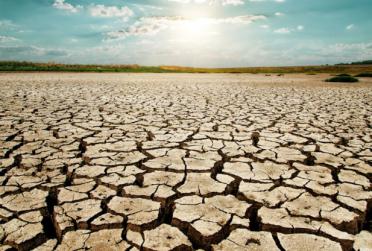Every week, parshaoftheweek.com brings you a rich selection of material on parshat hashavua, the weekly portion traditionally read in synagogues all over the world. Using both classic and contemporary material, we take a look at these portions in a fresh way, relating them to both ancient Jewish concerns as well as cutting-edge modern issues and topics. We also bring you material on the Jewish holidays, as well as insights into life cycle rituals and events...
Parshat Ha’azinu is a beautiful poem, a final effort by a soon-to-die Moshe to stir the Jewish people to a commitment to their covenant with God. The parsha, which speaks of both the Jewish past and future, and our relationship with God and his mitzvot (commandments), begins like this: “Listen, oh heavens and I will speak, and hear, oh earth, what I say”.
The obvious question is why does Moshe seem to address the heaven and earth – we thought he was meant to be talking to the Jewish people?
Rashi, in his commentary, referencing the Midrash, explains: heaven and earth are eternal. Unlike Moshe, who is about to die, they will be here forever. Therefore, if the Jewish people ultimately, in the future, sin, and break the covenant, and then try to somehow argue out of being punished, the heaven and earth will be there to testify against them, and to affirm that they did, in fact, accept the Torah, agree to enter into a covenant with God, and have failed to live according to its laws and ethics. In addition, Rashi explains, if and when the Jewish people do the right thing, and keep the laws, then the heaven and earth will not only stand in witness for their sake, but they will reward them as well, with rain, good weather, and bountiful crops. If, on the other hand, they break the covenant, the same heaven and earth will first testify against them, and then punish them, with drought and famine.
One is tempted, of course, to understand this imagery as being metaphorical. After all, the heaven and earth have no free will, no cognition or volition, and they will not really testify for or against the Jewish people, or decide to reward or punish them.
If we think about it for a moment, however, we soon realize that Moshe’s addressing the heaven and earth, and making them the custodians, as it were, of the fate of the Jewish people, is no metaphor.
We now stand at the precipice, the very edge, of doing irreversible damage to our climate, our ecosystem, our heavens and earth. This past year saw remarkable excesses of heat, drought, wildfires, storms and flooding, all over the globe. Severe and dangerous climate change is already a reality. Species are becoming extinct at a remarkable rate, and the seas, which are rising, are being depleted of the life which once swarmed in their depths, and played such a large role in feeding us. The heavens and earth are doing their job – testifying to our greed, selfishness, and stupidity. With no need to anthropomorphize them, no need to grant them the powers of memory, speech or free will, the heavens and earth are, in their rapidly-increasing dysfunction, reminding us eloquently and forcefully what is right and what is wrong, what is good and what is evil, and quite naturally, showing us how we have chosen evil over good, death over life; and they are punishing us for it.
In just a few weeks we will be finishing the yearly cycle of the Torah portions and begin again at Bereshit – Genesis. There we will read that God commanded Adam and Eve to “conquer”, to take charge of the world He had just created, and to have dominion over all the animal and vegetable life in it. Only a fool would interpret this to mean that man may recklessly and selfishly conquer the world in a destructive manner – that he may do what he wants with it, the way a sadist or serial killer “conquers”, and does what he wants with his victims. On the contrary, we are the earth’s custodians: taking charge means taking care. That is our role here on earth.
The Torah, along with the Rabbis in their interpretations, warns us against the pointless destruction of the earth’s riches, and encourages in us a sense of wonder and gratitude for the bounty which God has given us. Using the world in a way which will deny its resources to our children and grandchildren is so wrong, so stupid, that it goes beyond selfish. After all, shouldn’t a normal, healthy amount of selfishness include wanting the best for my grandchildren? And their grandchildren? I just don’t know how to understand an approach to the world’s resources that condemns our descendants – in the not distant future - to a very difficult time here on earth.
As we begin a new year, and approach the end of the Torah cycle and the start of a new one, we must understand and come to terms with the role of the heavens and earth in rewarding and punishing our actions. This is not a metaphor, and not metaphysics. This is real, this is literal. Our selfish, thoughtless greed, expressed in dozens of ways daily, is destroying the world. This is the most basic, ultimate message for us here, as the Torah comes to a close and Moshe reaches the end of his life. My fear is that it may be too late for us to now start to heed it.
Shabbat Shalom,
Rabbi Shimon Felix



Get inspired by Haazinu Divrei Torah from previous years